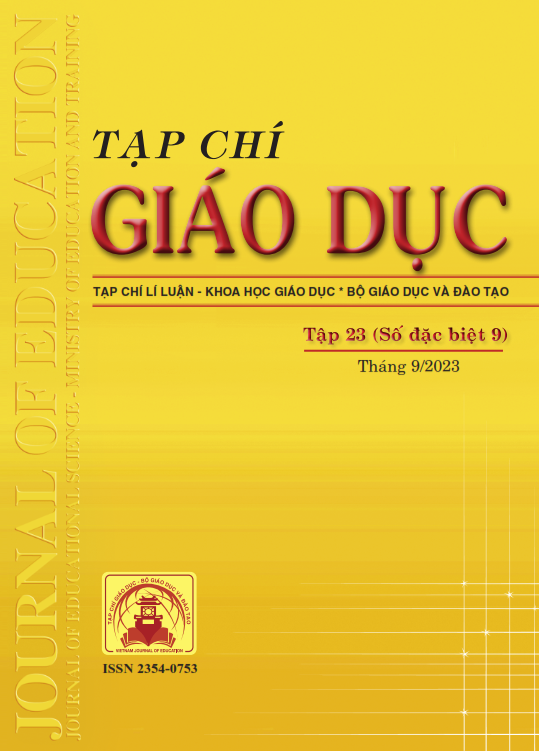Thiết kế trò chơi học tập để sử dụng trong dạy học Vật lí: trường hợp “trò chơi trên bàn” (board game)
Tóm tắt
In secondary education, designing educational games based on the curriculum content can foster students' interest. Creating an educational game can be a challenging task, especially for those without prior game design experience. To address this issue, we rely on theoretical research methods and expert consultation to refine the framework for designing educational board game. This design framework consists of five interconnected steps, accompanied by specific recommendations for teachers. Using this board game design framework, teachers can develop games to incorporate into their teaching for their respective subjects. We also illustrate the board game design steps through a specific example of creating a game called “Exploring the Solar System” for use in teaching 10th-grade Physics.
Tài liệu tham khảo
Cardinot, A., McCauley, V., & Fairfield, J. A. (2022). Designing physics board games: A practical guide for educators. Physics Education, 57(3). https://doi.org/10.1088/1361-6552/ac4ac4
Hochberg, K., Kuhn, J. & Müller, A. (2018). Using Smartphones as Experimental Tools—Effects on Interest, Curiosity, and Learning in Physics Education. Journal of Science Education and Technology, 27(5), 385-403. https://doi.org/10.1007/s10956-018-9731-7
Istenic, A., Bratko, I., & Rosanda, V. (2021). Are pre-service teachers disinclined to utilise embodied humanoid social robots in the classroom? British Journal of Educational Technology, 52(6), 2340-2358. https://doi.org/10.1111/bjet.13144
Malicoban, E. V., Bulado, J. F., Soriano, D. A. A., Monte, A. B. L., & Mordeno, I. C. V. (2021). Development of a STEM board game electriciladders for grade 8 students. Journal of Physics: Conference Series, 1835(1). https://doi.org/10.1088/1742-6596/1835/1/012030
Plass, J. L., Homer, B. D., & Kinzer, C. K. (2015). Foundations of Game-Based Learning. Educational Psychologist, 50(4), 258-283. https://doi.org/10.1080/00461520.2015.1122533
Ramani, G. B., Siegler, R. S., & Hitti, A. (2012). Taking it to the classroom: Number board games as a small group learning activity. Journal of Educational Psychology, 104(3), 661-672. https://doi.org/10.1037/a0028995
Sofna, A., Sakinah, Y., Misbah, M., & Pentang, J. T. (2023). Analysis of Student Learning Interest In Physics In Subject Force Material. International Journal of Education and Teaching Zone, 2(1), 25-39. https://doi.org/10.57092/ijetz.v2i1.58
Taspinar, B., Schmidt, W., & Schuhbauer, H. (2016). Gamification in education: A board game approach to knowledge acquisition. Procedia Computer Science, 99(October), 101-116. https://doi.org/10.1016/j.procs.2016.09.104
Trịnh Văn Đích (2019). Một số vấn đề lí luận về thiết kế và sử dụng trò chơi kĩ thuật trong dạy học môn Công nghệ ở trung học phổ thông. Tạp chí Giáo dục, 449, 26-31.
Tuminaro, J., & Redish, E. F. (2007). Elements of a cognitive model of physics problem solving: Epistemic games. Physical Review Special Topics - Physics Education Research, 3(2), 1-22. https://doi.org/10.1103/PhysRevSTPER.3.020101
Đã Xuất bản
Cách trích dẫn
Số
Chuyên mục
Giấy phép

Tác phẩm này được cấp phép theo Ghi nhận tác giả của Creative Commons Giấy phép quốc tế 4.0 .












